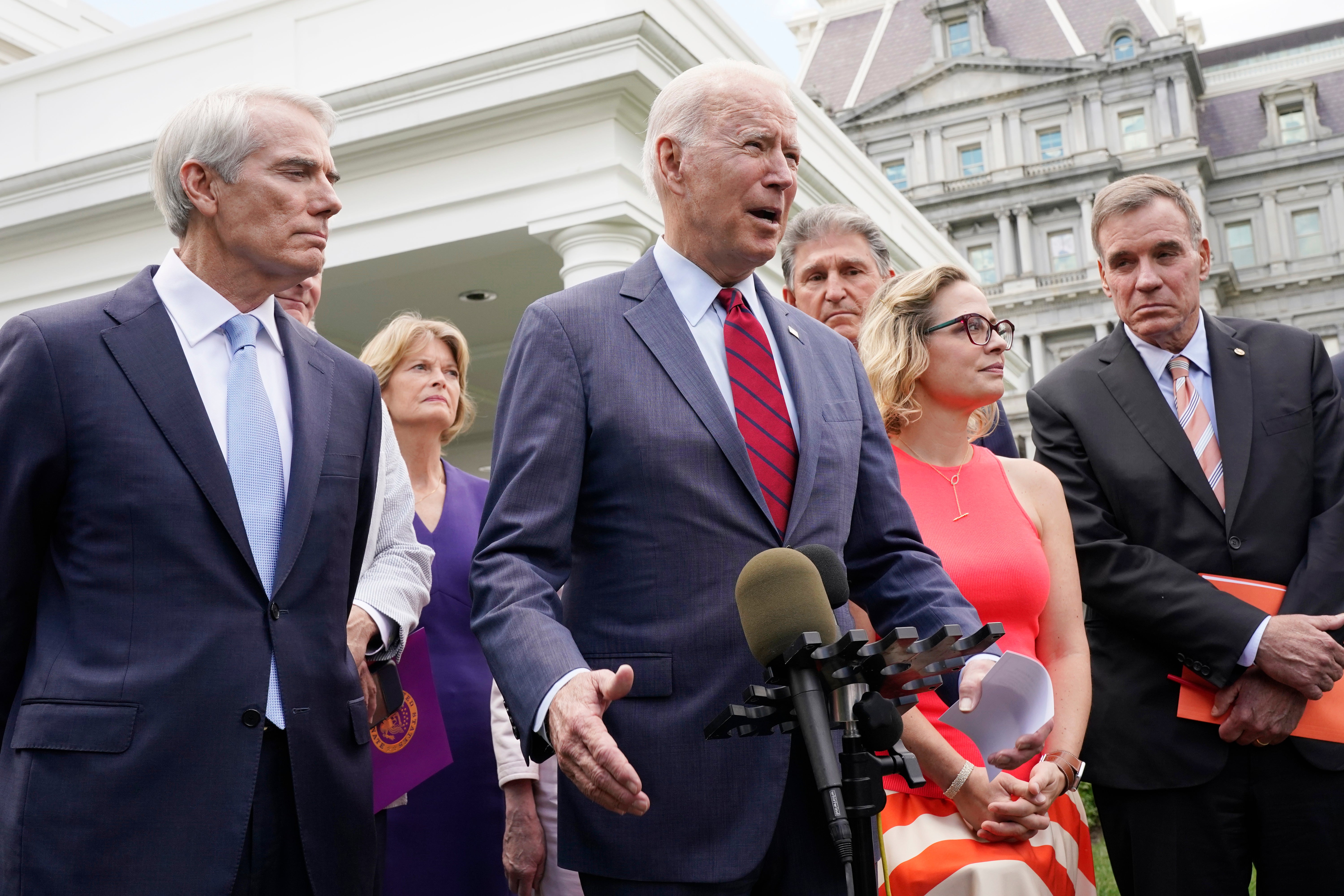Dem Sen. Sinema's views on economic bill remain shrouded
Democratic Sen. Kyrsten Sinema's views remained a mystery as party leaders eye votes later this week on their emerging economic legislation

Your support helps us to tell the story
From reproductive rights to climate change to Big Tech, The Independent is on the ground when the story is developing. Whether it's investigating the financials of Elon Musk's pro-Trump PAC or producing our latest documentary, 'The A Word', which shines a light on the American women fighting for reproductive rights, we know how important it is to parse out the facts from the messaging.
At such a critical moment in US history, we need reporters on the ground. Your donation allows us to keep sending journalists to speak to both sides of the story.
The Independent is trusted by Americans across the entire political spectrum. And unlike many other quality news outlets, we choose not to lock Americans out of our reporting and analysis with paywalls. We believe quality journalism should be available to everyone, paid for by those who can afford it.
Your support makes all the difference.Democratic Sen. Kyrsten Sinema's views remained a mystery Monday as party leaders eyed votes later this week on their emerging economic legislation and both parties pointed to dueling studies they used to either laud or belittle the measure's impact.
With Democrats needing all of their 50 votes for the energy and health care measure to move through the Senate, a Sinema spokesperson suggested the Arizona lawmaker would take her time revealing her decision. Hannah Hurley said Sinema was reviewing the bill and “will need to see what comes out of the parliamentarian process" — a process that could take days as the chamber's rules umpire decides whether the measure flouts procedural guidelines and needs changes.
Senate Majority Leader Chuck Schumer, D-N.Y., and Sen. Joe Manchin, D-W.Va., announced an agreement last week on legislation boosting taxes on huge corporations and wealthy individuals, bolstering fossil fuels and climate change efforts and curbing pharmaceutical prices. Overall, it would raise $739 billion over 10 years in revenue and spend $433 billion, leaving over $300 billion to modestly reduce federal deficits.
Schumer said he expected votes to begin this week in the Senate, where Vice President Kamala Harris could cast the tie-breaking vote to assure its passage. The narrowly divided House has left town for an August recess, but Democratic leaders have said they would bring lawmakers back for a vote, perhaps next week.
Manchin is one of Congress' most conservative and contrarian Democrats, and he has spent over a year forcing his party to starkly trim its economic proposals, citing inflation fears.
Sinema, a moderate, has played a similar though lower-profile role. Last year, she lauded a proposal for a minimum tax on large corporations — which the new legislation has — but she has also expressed opposition to increasing corporate or individual tax rates. Manchin said he planned to talk to her about the measure.
“She has a lot in this bill," Manchin, citing her support for past efforts to rein prices for prescription drugs, told reporters Monday. He said she's been “very adamant" about not increasing taxes, adding, “I feel the same way."
The legislation would give President Joe Biden a victory on his domestic agenda in the runup to this fall's congressional elections at a time when Democrats are hoping to build momentum and prevent a Republican takeover of Congress. If Sinema demands changes, there will be enormous pressure on her to reach agreements on them with party leaders and avoid a campaign-season defeat that would be a jarring blow to Democrats
Manchin has asserted the bill's imposition of a 15% minimum tax on corporations earning over $1 billion annually is not a tax increase. He says it closes loopholes such companies use to escape paying the current 21% corporate tax.
Republicans mocked that reasoning and said its tax boosts would weaken the economy and kill jobs. They cited a report from Congress' nonpartisan Joint Committee on Taxation that said about half of the corporate minimum tax would hit manufacturing firms.
“So in the middle of a supply chain crisis, Democrats want huge job-killing tax hikes that will disproportionately crush American manufacturing and manufacturing jobs," said Senate Minority Leader Mitch McConnell, R-Ky.
Democrats cited a report by Mark Zandi, chief economist at Moody’s Analytics. It said the measure “will nudge the economy and inflation in the right direction, while meaningfully addressing climate change and reducing the government's budget deficits."